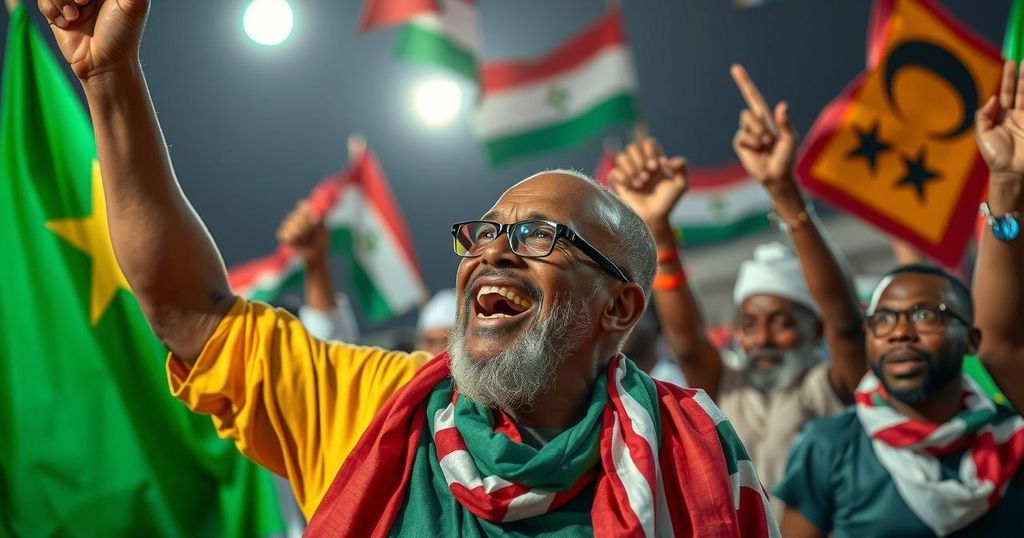Abdirahman Mohamed Abdullahi ‘Irro’ Elected as Somaliland’s New President

Abdirahman Mohamed Abdullahi ‘Irro’ has won the Somaliland presidential election, securing 64% of the vote and succeeding incumbent Musa Abdi Bihi. Irro, a former parliament speaker, faces significant challenges including economic issues and diplomatic tensions from a controversial deal with Ethiopia amid Somaliland’s ongoing quest for international recognition.
In a significant political shift in Somaliland, opposition leader Abdirahman Mohamed Abdullahi, also known as Irro, has secured victory in the recent presidential elections, obtaining 64% of the votes. This marks his ascension as Somaliland’s sixth president since its declaration of independence from Somalia in 1991. Irro, a seasoned politician and former speaker of the parliament, triumphed over the incumbent Musa Abdi Bihi, who received 35% of the vote but faced criticism for his governance style that many viewed as authoritarian, particularly during challenging economic times marked by currency devaluation. The presidential election on November 13 was observed by diplomats from nine European nations and the United States, underscoring international interest in this self-declared republic, which, despite its efforts towards democratic governance, remains unrecognized internationally. Irro’s presidency arrives at a crucial juncture, as he will need to navigate economic struggles and diplomatic tensions, particularly in light of a controversial land lease to Ethiopia that has raised concerns in Somalia. Somaliland’s burgeoning political landscape has developed in stark contrast to Somalia, which has struggled with prolonged instability and intermittent violence. Within this context, Irro’s background is notable; he was raised in Hargeisa, educated in Somalia and the United States, and garnered extensive diplomatic experience, serving as Somalia’s acting ambassador in the former Soviet Union. His return to Somaliland led to his involvement in politics, where he co-founded the Justice and Welfare Party in 2002 and eventually established the Wadani Party, which has become a formidable political entity contributing to his recent electoral success.
Somaliland, a self-declared republic that broke away from Somalia in 1991, has frequently engaged in democratization efforts, holding regular elections and developing its governance structures. Despite its relative stability and progress in creating its own institutions, Somaliland remains unrecognized on the international stage, hindering its potential for economic development and political engagement. The region’s strategic location bordering the Gulf of Aden has led to interests from various international actors, especially surrounding recent agreements that could alter its diplomatic landscape, particularly with Ethiopia, which has caused friction with Somalia. The political environment is characterized by a vibrant electoral process, contrasting sharply with Somalia’s ongoing challenges, including insecurity and a lack of effective governance.
The electoral victory of Abdirahman Mohamed Abdullahi ‘Irro’ symbolizes a pivotal moment in Somaliland’s political evolution, as he steps into the role of president amid pressing economic and diplomatic challenges. His successful campaign reflects a desire for a change in leadership and governance, especially against the backdrop of previous administration criticisms. As Somaliland seeks to improve its international standing, the forthcoming years will demand strategic diplomatic engagement and robust leadership to address both local and regional tensions and to foster economic stability.
Original Source: www.bbc.com








